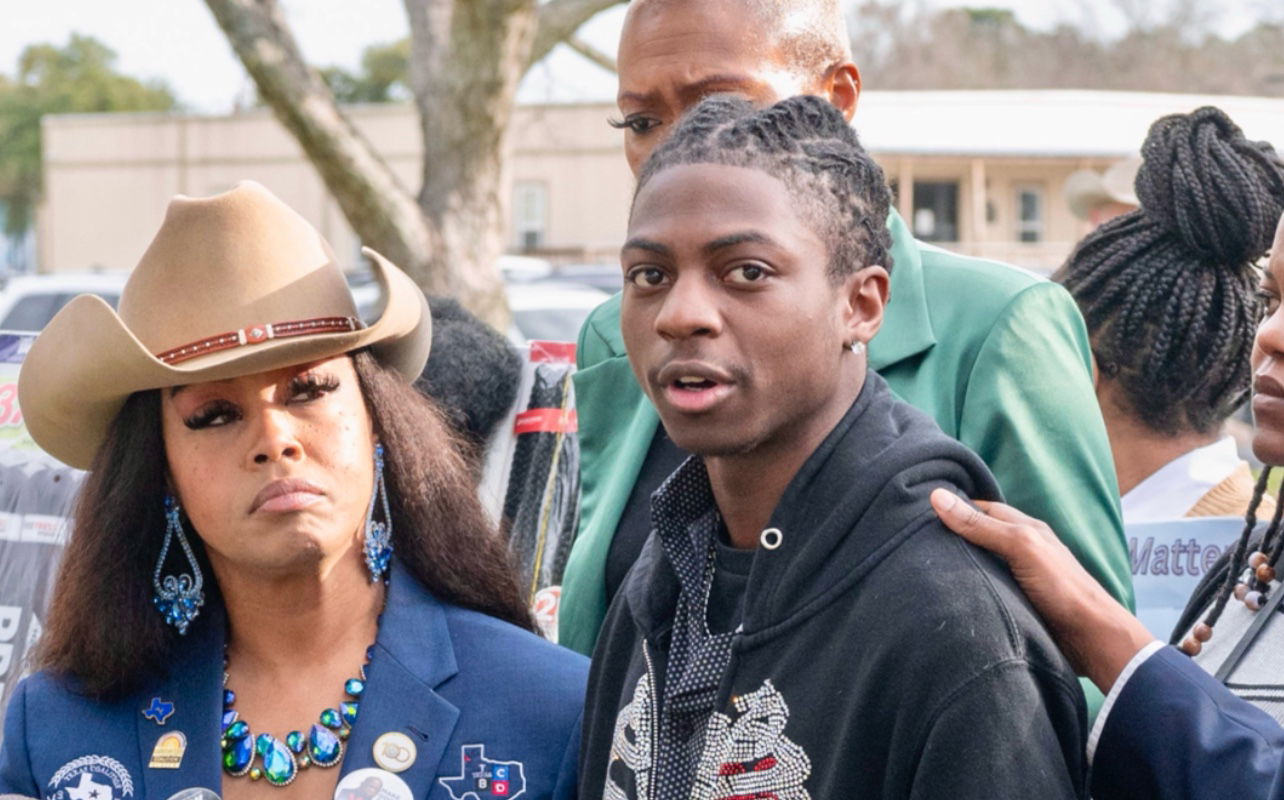
August 8, 2024
Darryl George Loses Racial Discrimination Case While Judge Allows Sex Discrimination Claim To Carry On
Keep your head up, Darryl!
Darryl George, the Black teen punished by a Texas school district for refusing to change his hairstyle, lost his racial discrimination case as a judge permitted his sex discrimination case to proceed, CNN reports.
U.S. District Court Judge Jeffrey Vincent Brown said George and his family “have not shown a persistent, widespread practice of disparate, race-based enforcement” of the hair policy. “At most, the plaintiffs allege only two instances: the allegations underlying George’s case and those underlying the Arnold case also pending in this court,” Brown said. “But these two instances alone are insufficient to establish a pattern of conduct going on ‘for so long or so frequently’ that it evinces a ‘persistent, widespread practice.’”
The judge also dismissed the family’s other claims, including infringement of George’s First Amendment free expression rights and request for “compensatory damages and injunctive and declaratory relief” for claims of “mental anguish.”
However, the sex discrimination claims in a federal civil rights lawsuit can continue.
Brown said while the school district provided reasons why a dress code had been implemented “they provide no support for the narrower question that forms the basis of this claim: what is the rationale for the dress code’s distinction between male and female students? Because the District does not provide any reason for the sex-based distinctions in its dress code, the claim survives this initial stage.”
This ruling comes just a few months after another federal judge ruled the state’s CROWN Act, a law prohibiting discrimination against hair texture and protective hairstyles like locs and braids “commonly or historically associated with race” does not rule out school dress codes that limit a student’s hair length. In summary, the Barbers Hill Independent School District did not violate state law in their continuous efforts to punish George for the length of his locs.
Following the CROWN Act decision, George described how the lengthy ordeal made him feel. “It puts a lot of emotions on me. Anger, sadness, you know, disappointment,” he said while holding back tears.
According to The Guardian, Brown dismissed additional suits against Texas Gov. Greg Abbott and Attorney General Ken Paxton, who, in the suit, were accused of failing to enforce the act, which went into effect in Sept. 2023.
Toward the end of his ruling, the judge compared George’s case to one from 1970, where a judge ruled against a school district based in El Paso, Texas. The unnamed district tried to prevent a male student from enrolling due to his hair length, finding it violated district policy. The ruling was later overturned by an appeals court, but the judge claimed that “the presence and enforcement of the hair-cut rule causes far more disruption of the classroom instructional process than the hair it seeks to prohibit.”
Brown agreed. “Regrettably, so too here.”
This is not the first time Barbers Hill’s hair policy has faced scrutiny. In May 2020, it faced a federal lawsuit filed by two other students who withdrew from the high school. After one decided to return following a temporary injunction granted by a federal judge, the student said in a pending suit there was “a substantial likelihood” that his rights to free speech and freedom from racial discrimination would be violated if he was barred.